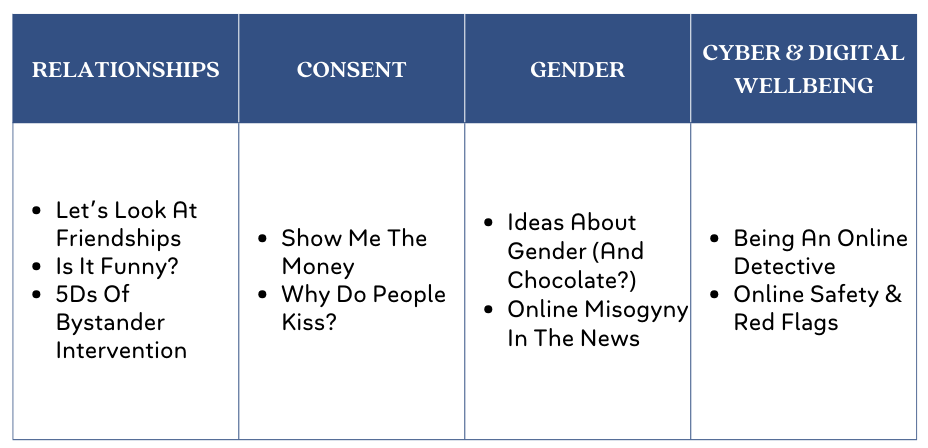In this
Let's Look At Friendships lesson, students will be introduced
to the concepts of positive friendship and assertive communication.
They will
consider their own views on a set of friendship qualities and share their
opinions in a large group discussion. Students will assess their own skills in standing
up for themselves then watch a short video to identify the communication styles of aggressive,
passive and assertive. The final discussion encourages students to consider how
relationships and communication can be impacted by a range of personal and
social factors including power dynamics.
Each lesson ends with a consolidation activity, inviting
students to list 1 thing they have learnt from the lesson, 1 thing they already
knew, 1 piece of advice they would share with a friend, and 1 adult or
organisation that would be helpful in relation to the lesson topic.
This lesson is based on work from the
“Practical Guide to Love, Sex and
Relationships” resource by Latrobe University.

